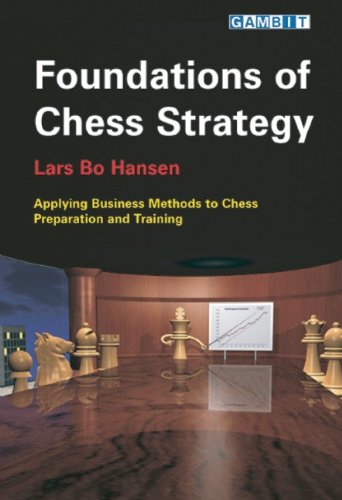
However, it is a book that contains numerous items to illustrate his speech, so it is equally entertaining. Its author, Lars Bo Hansen is a Danish GM who is also a professor of economics, specializing in marketing, organization and business strategy. In fact the book's subtitle is "Implementation of business methods chess", which gives an idea of ??the basis of his speech.

fundamentals-of-the-strategy-chess
The book opens with an introduction to chess strategy, a little theoretical and with reference to game theory, and followed with another chapter detailing the factors within it. All this constitutes a speech in my personal opinion of the author, since level strategy seems to me that each has his methods, but it is always interesting to read how a GM thinks about it.
The following five chapters form the central part, and in my opinion the most important book. In Chapter 3, the human factor is presented in chess, as with games, and ends up making a classification of 4 types of players, dividing by two variables: if they are based more on intuition or logic, and if they are based more on facts or general concepts. The following four chapters are devoted each to a type of player, detailing its features and exemplifying with games.
The book closes another chapter on environmental factors, explaining the usual (tempo, type of event, tournament situation, time trouble ....)
I read this book years ago and I remember at the time I did not like "such letter", but the truth is that it raises an interesting speech, gives numerous references and includes material enough quality, also commented from the perspective of his thesis, this it is trying to justify certain decisions of the players by placing them in the context of the games.
Certainly the theoretical part may seem a bit basic, because when you speak abstractly of strategic factors such as initiative, control boxes or coordination of the parts does not give you the feeling that you are expecting anything new. But I think the value of this book lies in all that material in the form of annotated games from their historical and psychological context.
As I mentioned yesterday the GM Paco Vallejo in this interview, psychological factors are crucial and are there on every play, but very few stop to study them. He also commented that in his opinion chess is mostly to practice tactics and that is what will make you better and not study psychology. I, just in case, I'll give a second reading to libro??

0 Comments